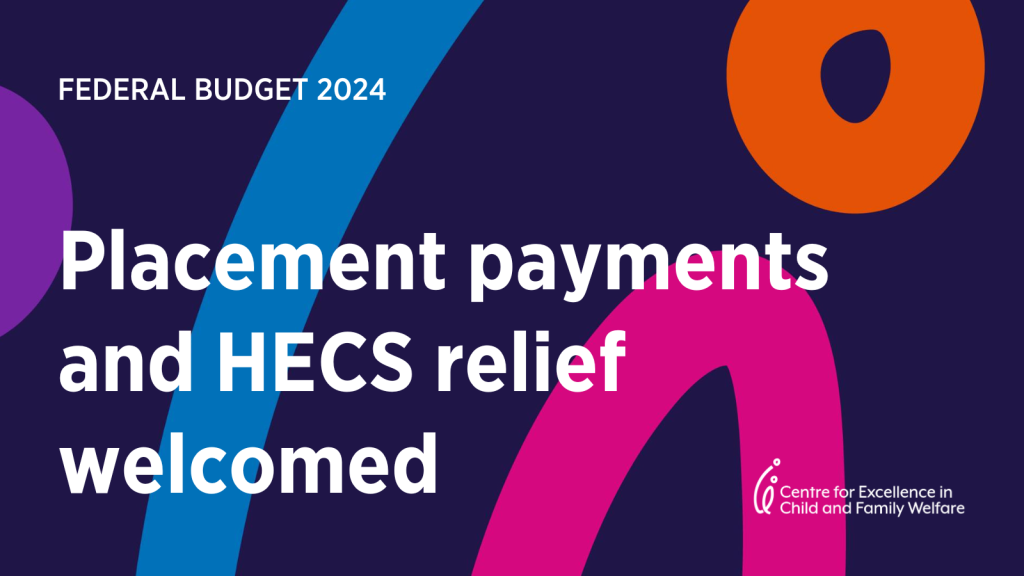Pre-budget announcements by the Commonwealth Government on HECS debt indexation and payments to end “placement poverty” have been welcomed by the Centre for Excellence in Child and Family Welfare.
The announcements come ahead of the budget announcement to be delivered on Tuesday, 14 May.
The Centre’s CEO Deb Tsorbaris says for many people fees attached to student debts and student payment contributions have been a major financial barrier to participating in higher education, along with costs associated with placements.
“Women seeking career changes, young people with care experience, students from regional areas, and other equity cohorts that are traditionally under-represented in tertiary education find these are significant barriers to pursuing their education dreams,” she says.
Placement poverty is a very real concern and disproportionately impacts women, who form a significant portion of the education, nursing and social work workforces, and who might now be able to pursue their passion with the assistance of this bursary payment.
“Previously the unpaid placement would have made this study impossible for many women,” she says.
Unpaid placements are also significant for regional students, who are often required to travel or relocate long distances and incur additional upfront costs.
The Centre’s Raising Expectations program has a significant number of out-of-home care experienced students undertaking courses that would benefit from the proposed Commonwealth Prac Payments and broader HECS relief.
“Throughout 2024, Raising Expectations has received an increase in inquiries from care-experienced students and from workers supporting young people in out-of-home care seeking support with the cost of study,” she says.
Students are challenged by cost-of-living pressures and the hardship faced in balancing study, including lengthy student placement requirements, work and life responsibilities.
A significant proportion of students participating in TAFE and university study at Raising Expectations partner institutions are studying in fields that require them to undertake unpaid work placements, with about 35 percent of students at TAFE and 38 percent of students at university undertaking a qualification in the areas of health, community services and education.
Ms Tsorbaris says expediting these placement payments will make a big difference for current students who might otherwise have to withdraw from, or postpone, their studies due to rising pressures in that time.
In response to the Australian Universities Accord review, the Centre welcomed the finding that increasing equity in tertiary education requires raising aspirational levels among currently under-represented groups and recommended expanding equity group categories to include care-experienced students.
More information
- Read the Centre’s submission to the Universities Acord Interim Report here.
- Read our Federal Budget 2024 submission here
- More information on the Commonwealth Prac Payments here
- More information on the proposed changes to indexation of HELP Loans here






